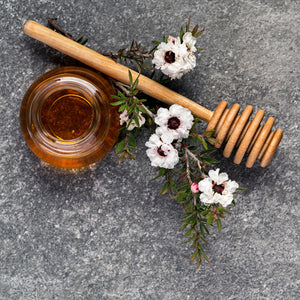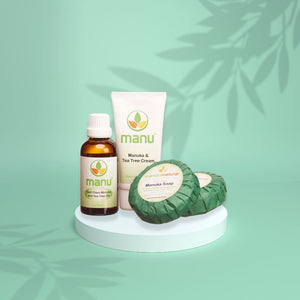
When Should You Start Supporting Your Beauty?
What is the right age to start supporting your beauty and with what ingredients?
So, AT WHAT AGE should beauty be your primary concern?
The answer depends on the individual skin type and its condition. On average, anti-aging creams are recommended from the mid-20s. It is the time when the skin slowly begins to lose its features, but that depends on many factors.
The first signs of aging skin usually appear when you cross the age of 30. Usually, it is a time when delicate lines on the forehead and maybe small wrinkles around the eyes appear.
This is the first obvious sign that your skin needs more care.
The lifestyle from the younger days will be reflected on the beauty in the age 30s, 40s, and beyond
You know the popular one: “Old age will ask you where your youth was”
In facial care, this is the bare truth.
What did you eat and drink in your 20s, did you smoke, replace day for the night … you get it.
That is why it is imperative to
start with quality anti-aging care on time.
However, choosing appropriate anti-age care can be a difficult task.
If in doubt, keep reading!
Key ingredients of an excellent age beauty face cream
Whichever brand you choose, choose a cream that moisturizes. Also, keep your eye on the cream with plenty of herbal extracts. Remember that your body needs ingredients that attract moisture from the air. But also to keep the existing one in your skin in its place.
It is best to choose a brand with both a day and night variant. That way, your facial will be complete. However, sometimes the label on the cream will not match your age. For example, you are 40, and you look 35.
When choosing a cream, the main thing to remember is that your skin first needs moisture.
And I know what you may think?! Hyaluronic acid?!
1) Q10 AND HYALURONIC ACID (AT CERATIN AGE)
However, proven anti-aging active ingredients such as Q10 and hyaluronic acid are too intense for young skin. So, just because the label says that your age beauty cream contains HA, it doesn’t mean that it will adequately moisturize it.
Let me explain.
Many skincare products containing hyaluronic acid claim to increase hydration within the skin. But how much of this is true?
The answer requires a close-up of the type of HA in the product.
HA comes in different molecular sizes. Despite being the best at binding water and promoting hydration, Larger HA molecules cannot penetrate the skin.
When you apply it topically, these molecules sit on top of the skin, offering hydration only at the surface. However, smaller HA molecules, which bind less water, can penetrate deeper into the skin (though only the epidermis, the topmost layer of skin). (1)
Look for a product containing HA molecules in various sizes for maximum hydration.
2) MANUKA HONEY
On the other hand, manuka honey is emollient and hygroscopic compound. And that means it attracts water from two sources – from the dermis into the epidermis and in humid conditions from the environment.
So it traps moisture, but it also penetrates deeper layers of skin.
Although you can use manuka honey by itself, for your age beauty moisturizing routine, for the most time, you will find it in the mixture with other ingredients.
One research showed its efficiency when in the mixture with other moisturizing ingredients—emulsions containing higher concentrations of honey hydrated the skin more efficiently. On the contrary, the lower concentrations proved to be preferable after four hours of exposure.
Active hydration of manuka honey depends on the content of sugars, mainly fructose and glucose. Together these form hydrogen bridges with water and maintain the moisture of the skin layer. The bridges then create a protective non-greasy film on the skin to help keep water in the skin.
Measurements in the research were performed on 26 healthy women (aged 23 to 49 years, mean age 36 years) with no history of skin issues. (2)
3) LECITHIN
How often have you heard about lecithin in connection with home cosmetics? Rarely, yes?
However, it is an ingredient used in many commercial cosmetic products. And that is because lecithin consists mainly of fatty substances called phospholipids.
Phospholipids are the building material of cell membranes. They are one of nature’s most potent humectants, meaning they can help lock in moisture, supporting the body’s natural hydration process and promoting revitalization.
But this story doesn’t end here.
Phospholipids are particularly rich in choline. In like manner, it regulates the volumes and water content of our skin cells and is essential to help maintain moisture levels in the skin.
I.e., a fermented food called natto is full of lecithin, so we decided to put Natto gum in the same ‘box’ with our Manuka honey.
And give you…
1 age beauty revitalizing face cream for all ages
Timeless Beauty – Revitalising Face Cream
This Manuka honey revitalizing cream has a rich blend of natural oils, beeswax, and rose water to create a silky soft skin cream that restores your skin and reduces the visible signs of aging.
Age beauty cream for women and men is made with antioxidant-rich, ultra-hydrating manuka honey that renews the skin’s appearance for a dewy, healthy-looking glow.
Thanks to manuka honey, it has the creamiest texture.
Not oily or greasy at all despite being so rich with ingredients. Just silky smooth and hydrating, and it feels nice. Nothing too strong, and it fades within moments of applying, thanks to avocado oil.
It’s moisturizing and feels sticky for the first 5-10 minutes after application but sinks into something of a satin finish.
But, you have to be a little patient.
The scent is pleasant, a touch of honey but not overpowering or perfumey.
What else?
No cream in the world won’t set you free from wrinkles unless you look after yourself.
Eat healthy: While a revitalizing face cream helps the skin on the outside, vegetables, fruits, fish, nuts, and whole grains supply the body with antioxidants.
They can stop free radicals, i.e., minimize their formation due to external factors, and thus indirectly contribute to the healthy appearance of the skin.
Get enough fluids: If you want to prevent the early appearance of wrinkles resulting from dry skin, you should also get enough fluids. 1.5 to 2 liters of water per day is enough for the body. However, it doesn’t always have to be a whole amount of water. In the beginning, make your life easier and add juices and tea to your drink plan.
Be aware of your environment: Stress harms our nervous system, but it also contributes to the appearance of old skin because urgency and lack of sleep also encourage the formation of free radicals. Relaxing balance: do what you often love – your skin needs it to regenerate.
Stay fit: Exercise – ideally in the fresh air – boost your metabolism. This speeds up blood circulation and the supply of nutrients to the skin. In addition, an active lifestyle contributes to inner balance and serves as a reliable anti-stress method.
Get enough sleep – this is self-explanatory, and everyone knows it, but the strange thing is how we sometimes decide not to listen to ourselves.
ORIGINALLY PUBLISHED on blog.manukanatural.com



Leave a comment